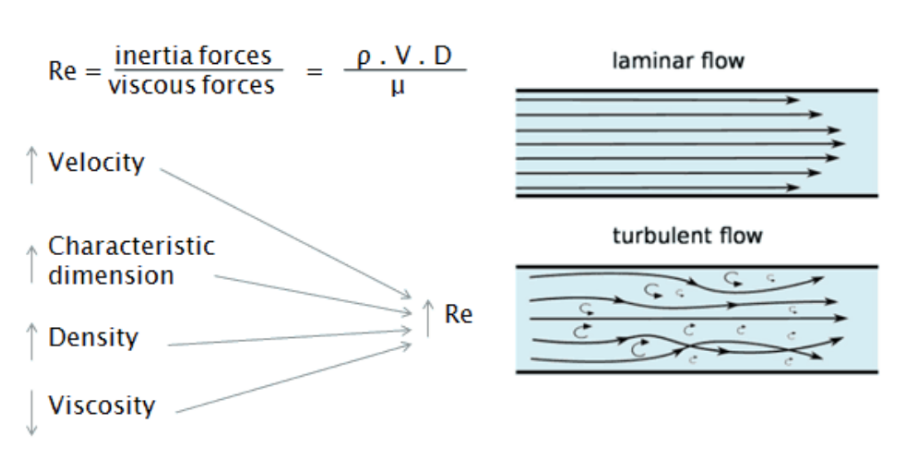Theory bites are a collection of basic hydraulic theory and will touch upon pump design and other areas of pump industry knowledge.
Reynolds number, in fluid mechanics, a criterion of whether the fluid (liquid or gas) flow is absolutely steady (streamlined, or laminar) or on average steady with small unsteady fluctuations (turbulent).
Whenever the Reynolds number is less than about 2,000, flow in a pipe is generally laminar, whereas, at values greater than 2,000, flow is usually turbulent. Actually, the transition between laminar and turbulent flow occurs not at a specific value of the Reynolds number but in a range usually beginning between 1,000 to 2,000 and extending upward to between 3,000 and 5,000.
Read more Theory Bites!




